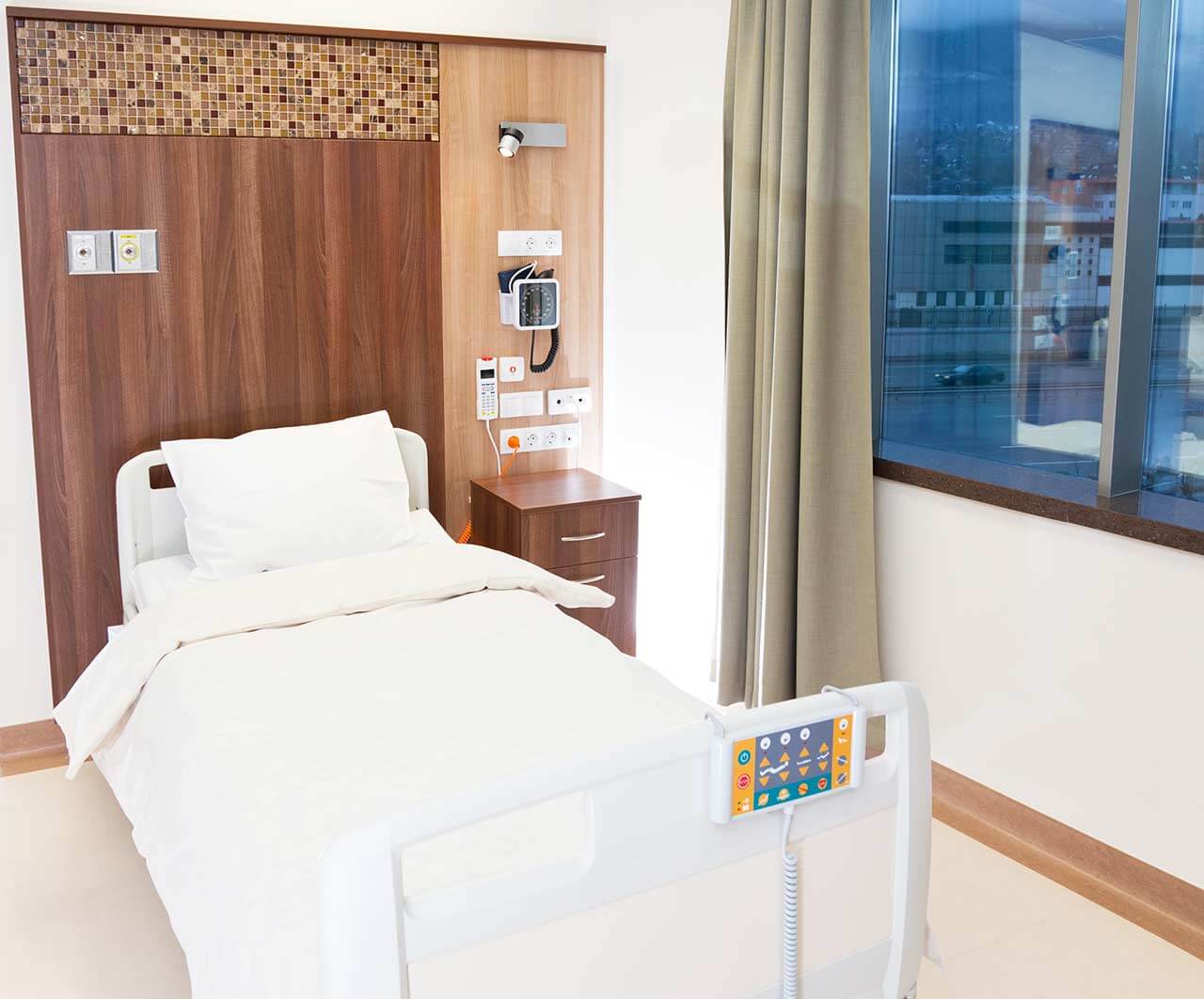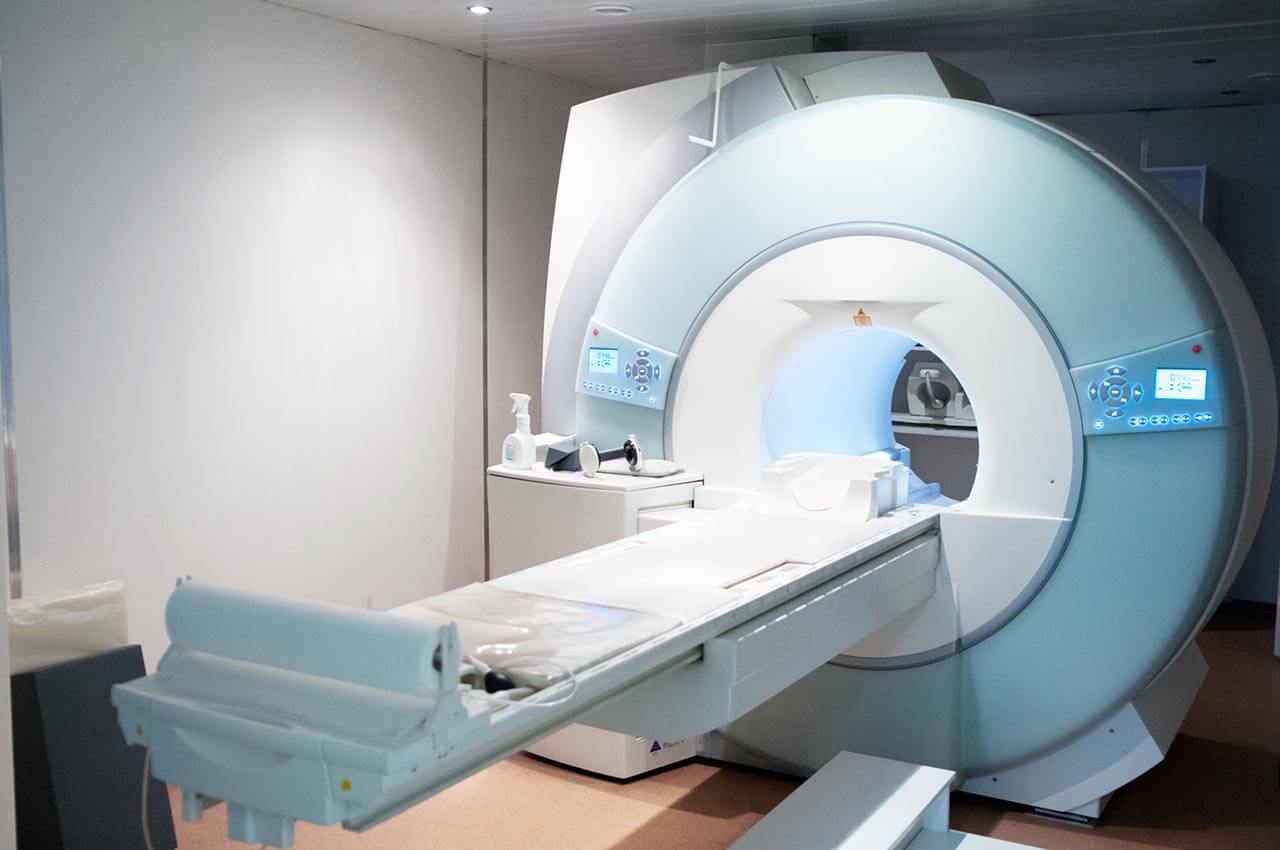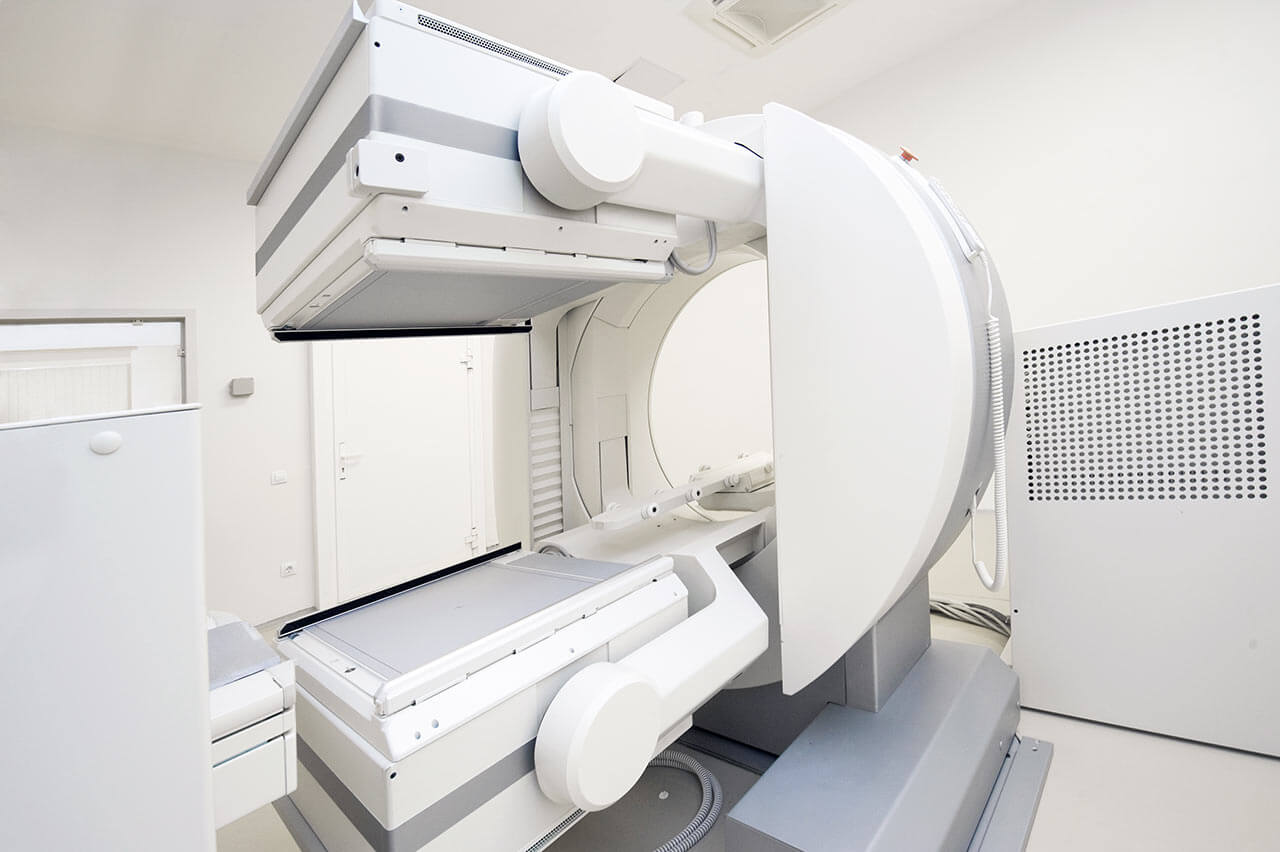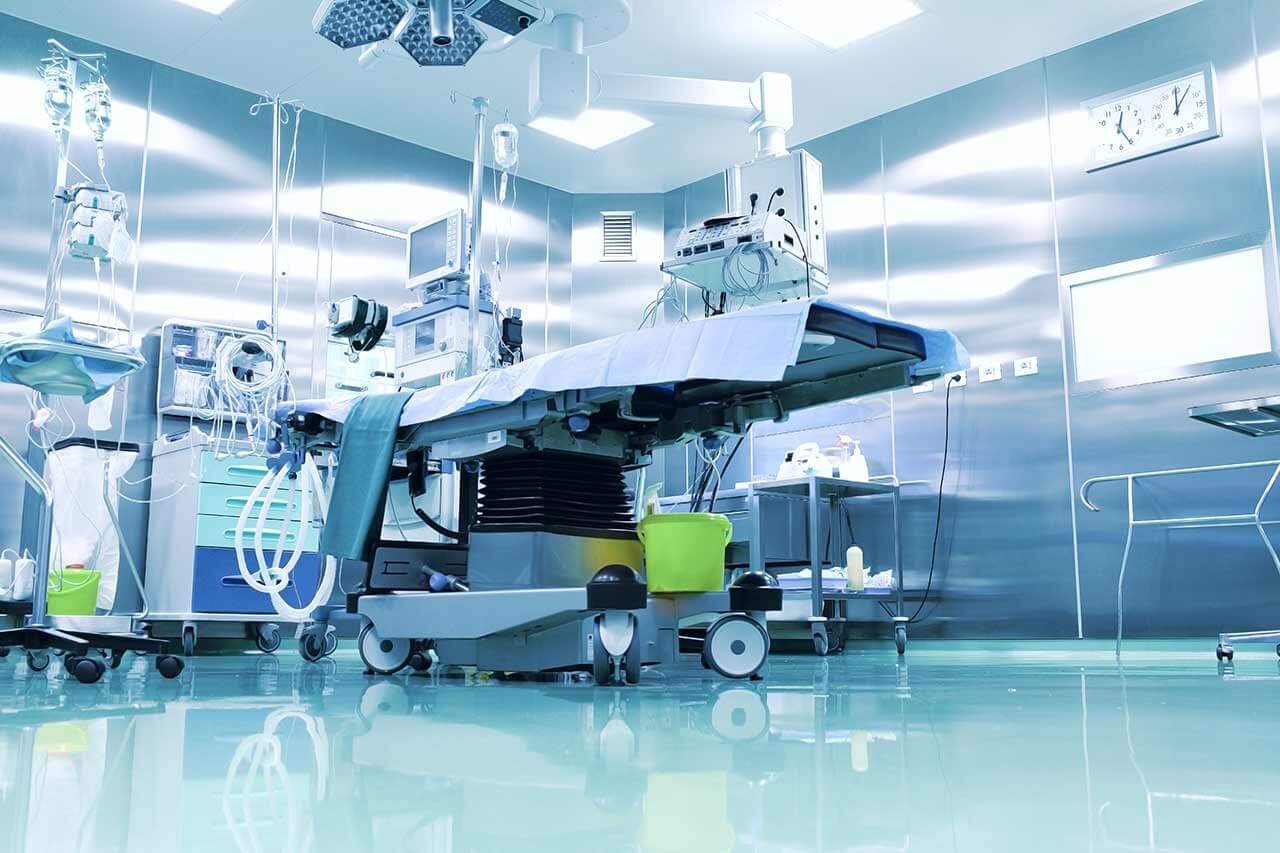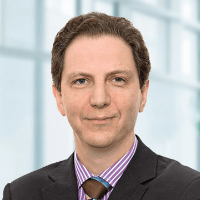
The program includes:
- Initial presentation in the clinic
- clinical history taking
- review of medical records
- physical examination
- ophthalmological examination:
- slit lamp examination
- pupil examination
- ocular motility examination
- ophthalmoscopy
- perimetry (visual field test)
- computer perimetry
- visometry (without correction and with correction)
- keratometry
- pachymetry
- refractometry (objective, subjective, cycloplegic)
- autorefractometry
- non-contact tonometry
- fluorescein angiography (if indicated clinically)
- optical coherence tomography OCT (if indicated clinically)
- gonioscopy
- photokeratoscopy
- doppler ultrasound of the retinal vessels
- nursing services
- consultation of related specialists
- treatment by chief physician and all leading experts
- explanation of individual treatment plan
Service
You may also book:
 BookingHealth Price from:
BookingHealth Price from:
About the department
The Department of Adult and Pediatric Ophthalmology at the University Hospital Marburg UKGM offers the full range of medical services for the diagnostics and treatment of diseases of the eyes, eye muscles, lacrimal ducts and eyelids. The department’s priority clinical focuses include corneal surgery, refractive eye surgery, eye lens surgery, retinal surgery, eyelid surgery and glaucoma treatment. Medical care is provided in close collaboration with specialists in the field of pediatrics, neurology, neurosurgery, neuroradiology, otolaryngology, oral and maxillofacial surgery. The department provides patients with first-class comprehensive treatment that meets international medical standards. The department is headed by Prof. Dr. med. Walter Sekundo.
The department has four state-of-the-art operating rooms for ophthalmic interventions of any severity. The most demanded interventions include corneal transplantation (perforated keratoplasty, lamellar procedures, for example, DMEK and DSAEK), refractive eye surgery to correct visual impairment (modern procedures using excimer and femtosecond lasers – Femto-Lasik, Lasik, FLEx, Lasek), removal of eyelid and orbital neoplasms, eyelid plastic surgery, reconstructive surgery of the tear duct, cataract, glaucoma surgery, vitreous removal in case of diabetic lesions, treatment of age-related macular degeneration.
The department has an excellent reputation in the field of glaucoma treatment. The arsenal includes the very latest diagnostic methods. In addition to visual acuity testing, the department regularly carries out visual field examinations to monitor the optic nerve function, an assessment of the optic nerve head (by biomicroscopic examination), and intraocular pressure measurement (applanation or dynamic tonometry). The department also offers the opportunity to assess the condition of the optic disc using a three-dimensional laser (HRT).
The department is proud of its outstanding results in the treatment of tumors of the eye and its appendages. Particular attention is paid to choroidal melanoma. The department is part of the Comprehensive Cancer Center, and therefore it has access to all modern diagnostic and therapeutic methods for the effective fight against malignant neoplasms.
The main clinical focuses of the department include:
- Selection of glasses, contact lenses
- Electrophysiological studies
- Imaging ophthalmologic diagnostics (for example, angiography, optical coherence tomography, ultrasound)
- Diagnostics and treatment of glaucoma
- Diagnostics and treatment of corneal diseases
- All corneal transplant procedures
- Penetrating keratoplasty
- Lamellar keratoplasty
- Deep anterior keratoplasty
- Penetrating keratoplasty
- Amniotic membrane transplantation
- Autologous stem cell transplantation
- Manual keratectomy
- Phototherapeutic keratectomy (also using mitomycin C)
- Pterygium excision with a free autologous conjunctival transplant (with and without mitomycin C)
- Treatment of severe corneal defects using cyanoacrylate glue
- Autologous scleral grafting in case of corneal and scleral defects
- Crosslinking for keratoconus
- Diagnostics and treatment of diseases of the eyelids and tear duct
- Eyelid deformities (for example, ectropion, entropion, distichiasis)
- Age-related eyelid changes (for example, droopy eyelids, bags under the eyes)
- Cosmetic eyelid problems (for example, blepharochalasis, ptosis, bags under the eyes, xanthelasma, scars)
- Eyelid neoplasms (benign and malignant tumors, for example, basal cell carcinoma, malignant melanoma)
- Probing and irrigation of the lacrimal ducts
- Nasolacrimal intubation
- Surgical treatment of lacrimation (dacryocystorhinostomy)
- Diagnostics and treatment of benign and malignant neoplasms of the eye, eye appendages
- Refractive eye surgery (laser vision correction)
- Diagnostics and treatment of retinal and vitreous diseases
- Diagnostics and treatment of strabismus in adults and children
- Diagnostics and treatment of amblyopia in adults and children
- Diagnostics and treatment of nystagmus in adults and children
- Diagnostics and treatment of eye movement disorders
- Diagnostics and treatment of neurological diseases with eye lesions
- Diagnostics and treatment of general eye diseases in children and adolescents
- Diagnostics and treatment of thyroid diseases with eye lesions (endocrine ophthalmopathy)
- Other medical services
Curriculum vitae
In 1991, Prof. Dr. med. Walter Sekundo defended his doctoral dissertation at Johann Wolfgang Goethe University Frankfurt on chest radiography as a prognostic factor for evaluating the course of pneumocystis pneumonia in AIDS patients. Since 1992, the doctor has been involved in ophthalmology. He underwent professional medical training at the University Hospitals in Glasgow and Bonn. In 1997, he was appointed Senior Physician in the Department of Adult and Pediatric Ophthalmology at the University Hospital Marburg UKGM. From 2006 to 2008, he served as Deputy Head of the Department of Ophthalmology at the University Hospital Mainz. Since December 1, 2008, he has been heading the Department of Adult and Pediatric Ophthalmology at the University Hospital Marburg UKGM. In addition, he is Professor for Ophthalmology at the Phillips University of Marburg.
Prof. Sekundo devotes a lot of time to research. Of particular interest to him is ophthalmic surgery. He focuses on diseases of the anterior segment of the eye, corneal pathologies, cataract and refractive eye surgery.
For his work in the field of refractive eye surgery, Prof. Sekundo and his colleague Markus Blum were awarded the First Prize of the American Association of Surgeons in Cataract and Refractive Eye Surgery in the category "Instruments and Devices" (2008). Later that year they were awarded the Second Prize for the Video Work of the German Society of Ophthalmology. In 2010, both specialists were awarded Leonard Klein Prize for their work on femtosecond vision correction using lenticular removal (FLEX), a new method for the surgical treatment of myopia.
Photo of the doctor: (c) UKGM - Universitätsklinikum Gießen und Marburg GmbH
About hospital
The University Hospital Marburg UKGM offers patients modern diagnostics and comprehensive therapy at the international level. As a maximum care hospital, the medical facility specializes in all fields of modern medicine ranging from ophthalmology to traumatology and dentistry. The main areas of specialization of the hospital are surgery, neurosurgery, oncology, nephrology with kidney transplantation and children's medicine.
The hospital is the third largest in Germany. Every year, more than 436,000 patients are treated in two locations of the hospital (Giessen and Marburg): 342,000 in outpatient and 94,000 inpatient settings. The medical facility is the first privatized university hospital in the country.
The hospital staff makes a significant contribution to the development of research activities at the Faculty of Medicine of the Justus Liebig University Giessen and the Philipps University of Marburg. To develop new diagnostic and therapeutic methods, as well as to implement them into clinical practice, the specialists maintain active cooperation in a large number of areas.
The widest range of diagnostic and therapeutic services, the advanced infrastructure and technical base, high quality of treatment and professionalism of health workers contribute to the fact that the medical facility has an excellent reputation not only in Germany, but also far beyond its borders.
Photo: (c) depositphotos
Accommodation in hospital
Patients rooms
The patients of the University Hospital Marburg UKGM live in comfortable single and double rooms made in a modern design and light colors. Each room has an ensuite bathroom with shower and toilet. The pediatric departments provide patient rooms for the joint accommodation of mother and child. The standard room furnishing includes an automatically adjustable bed, bedside table, wardrobe, TV, telephone.
Meals and Menus
The patients of the hospital are offered balanced, healthy three meals a day: buffet breakfast, lunch and dinner. The private kitchen, certified according to DIN EN ISO 9001: 2000, is responsible for providing patients with food and drinks.
If for some reason you do not eat all foods, you will be offered an individual menu. The hospital also has a cafeteria with a large assortment of hot and cold drinks, snacks and desserts.
Further details
Standard rooms include:
Television
All patient rooms are equipped with TV sets. If you have some questions about TV use, please contact medical personnel.
Religion
Religious services can be provided upon request.
Accompanying person
During an inpatient program, an accompanying person can stay with you in a patient room or in a hotel of your choice.
Hotel
During the outpatient program, you can stay at the hotel of your choice. Our managers will help you choose the most suitable option.
